
Barup Waterfall: Nigeria's Hidden Gem
Nestled in the verdant landscapes of Nigeria, Barup Waterfall is a stunning natural wonder that captivates the hearts of all who visit. This enchanting waterfall offers a serene escape from the hustle and bustle of city life, providing a perfect setting for relaxation and rejuvenation. The cascading waters create a mesmerizing display that is both soothing and awe-inspiring, making it a must-visit destination for nature lovers and adventure seekers alike. Surrounded by lush greenery and towering trees, Barup Waterfall is not only a picturesque location but also a haven for wildlife. Visitors can enjoy bird watching and spot various species of animals in their natural habitat. The area around the waterfall is ideal for hiking, picnicking, and exploring the rich biodiversity of the region. The cool, refreshing waters at the base of the waterfall create a natural swimming pool, inviting tourists to take a dip and cool off on a hot day. Barup Waterfall is more than just a visual delight; it is also steeped in local culture and history. The waterfall holds significant cultural importance to the indigenous communities, who often share fascinating stories and legends about the site. Engaging with the local people provides a deeper understanding of the area's heritage and traditions, enriching the overall experience. Whether you are looking for a peaceful retreat or an adventurous outing, Barup Waterfall is a destination that promises unforgettable memories.
Local tips in Barup Waterfall
- Visit early in the morning to avoid the crowds and enjoy the tranquil atmosphere.
- Wear comfortable hiking shoes as the trails can be slippery and uneven.
- Bring insect repellent to protect against bugs in the dense forest area.
- Pack a picnic and plenty of water, as there are limited facilities nearby.
- Engage with local guides to learn about the cultural significance and history of the waterfall.
Barup Waterfall: Nigeria's Hidden Gem
Nestled in the verdant landscapes of Nigeria, Barup Waterfall is a stunning natural wonder that captivates the hearts of all who visit. This enchanting waterfall offers a serene escape from the hustle and bustle of city life, providing a perfect setting for relaxation and rejuvenation. The cascading waters create a mesmerizing display that is both soothing and awe-inspiring, making it a must-visit destination for nature lovers and adventure seekers alike. Surrounded by lush greenery and towering trees, Barup Waterfall is not only a picturesque location but also a haven for wildlife. Visitors can enjoy bird watching and spot various species of animals in their natural habitat. The area around the waterfall is ideal for hiking, picnicking, and exploring the rich biodiversity of the region. The cool, refreshing waters at the base of the waterfall create a natural swimming pool, inviting tourists to take a dip and cool off on a hot day. Barup Waterfall is more than just a visual delight; it is also steeped in local culture and history. The waterfall holds significant cultural importance to the indigenous communities, who often share fascinating stories and legends about the site. Engaging with the local people provides a deeper understanding of the area's heritage and traditions, enriching the overall experience. Whether you are looking for a peaceful retreat or an adventurous outing, Barup Waterfall is a destination that promises unforgettable memories.
When is the best time to go to Barup Waterfall?
Iconic landmarks you can’t miss
Nike Art Gallery
Explore the vibrant world of Nigerian art at the Nike Art Gallery in Lekki, showcasing unique pieces and cultural heritage.
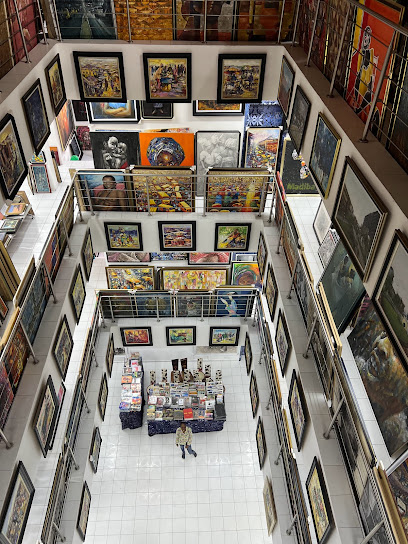
Freedom Park Lagos
Discover the historical charm and natural beauty of Freedom Park Lagos, a unique national park that celebrates culture and community.
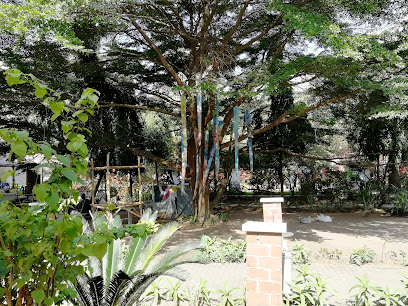
Erin Ijesha Waterfall
Experience the enchanting beauty of Erin Ijesha Waterfall, a natural haven for adventure seekers and relaxation enthusiasts in Nigeria's Osun State.
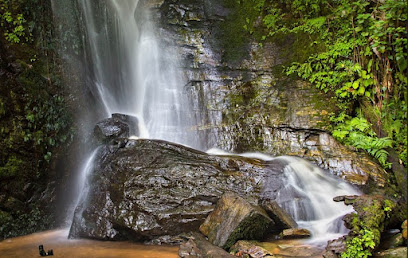
Olumo Rock Tourist Centre
Explore the stunning Olumo Rock Tourist Centre, a historical landmark in Abeokuta, Ogun State, and immerse yourself in Nigeria's rich cultural heritage.
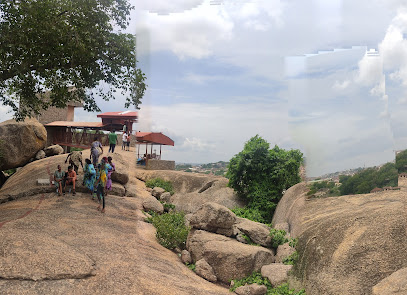
Ikogosi Warm Springs Resort
Experience the unique warmth of nature at Ikogosi Warm Springs Resort, where relaxation meets adventure in the heart of Ekiti, Nigeria.

Gurara Waterfalls
Experience the breathtaking beauty of Gurara Waterfalls in Niger State, a perfect blend of adventure and tranquility surrounded by nature's splendor.
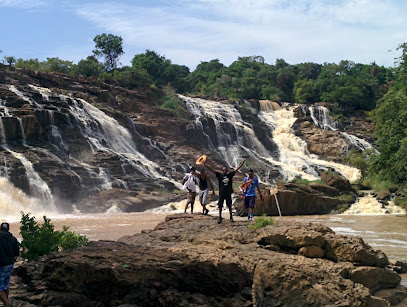
Ogbunike Cave
Discover the enchanting beauty of Ogbunike Cave—an awe-inspiring natural wonder in Anambra, Nigeria, rich in culture and adventure.
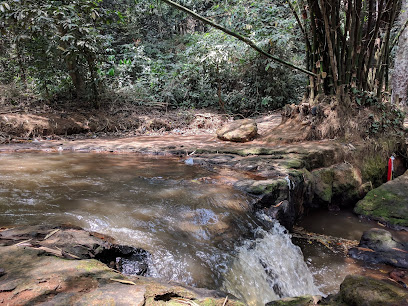
Owu Waterfall
Explore Owu Waterfall, Nigeria's breathtaking natural attraction, where cascading waters meet lush landscapes for an unforgettable experience.
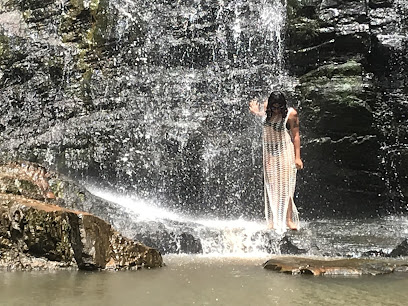
Kwa Falls
Discover the enchanting beauty of Kwa Falls, a serene escape in Cross River State, Nigeria, where nature's splendor awaits every traveler.
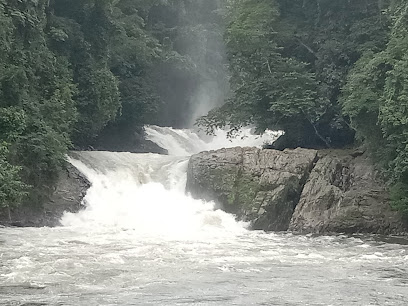
Arinta Waterfalls
Experience the enchanting beauty of Arinta Waterfalls, a hidden gem in Ekiti, Nigeria, surrounded by lush landscapes and breathtaking views.
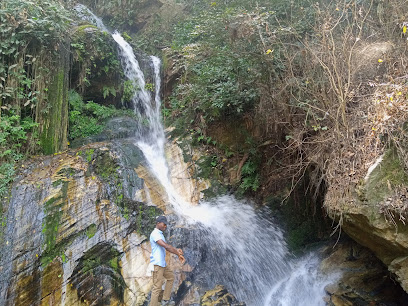
Karu Waterfalls
Experience the breathtaking beauty of Karu Waterfalls, a serene escape in the heart of Nigeria's Federal Capital Territory, perfect for relaxation and adventure.
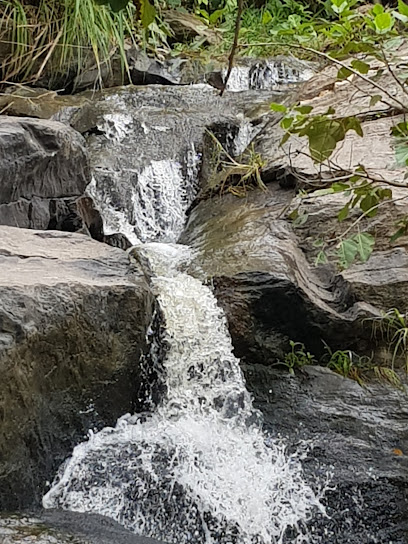
Agbokim Waterfalls, Nigeria
Explore the mesmerizing Agbokim Waterfalls in Cross River, Nigeria, a stunning natural attraction that promises breathtaking views and serene landscapes.
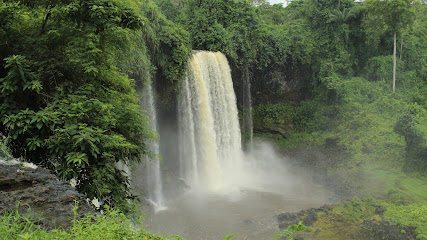
Matsirga Attat Waterfalls
Experience the breathtaking beauty of Matsirga Attat Waterfalls in Kafanchan, a must-visit natural wonder in Kaduna, Nigeria.
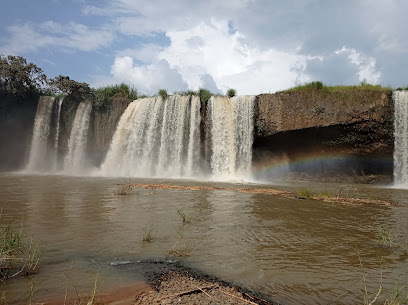
Karshi Waterfall
Explore the breathtaking beauty of Karshi Waterfall, a serene natural attraction in Nigeria's Federal Capital Territory, perfect for relaxation and adventure.
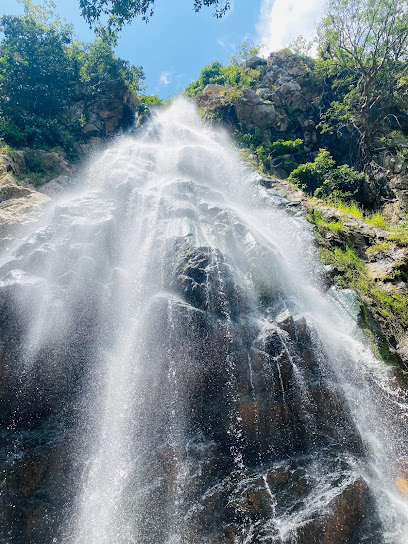
Ayikunugba Waterfall
Experience the enchanting beauty of Ayikunugba Waterfall, a serene escape nestled in the lush landscapes of Osun, Nigeria, perfect for nature lovers and adventurers.
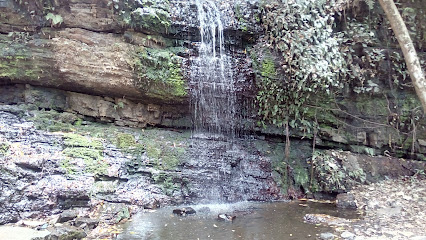
Unmissable attractions to see
Lekki Conservation Centre
Explore the rich biodiversity and breathtaking views at Lekki Conservation Centre, a premier nature preserve in Lagos, Nigeria.
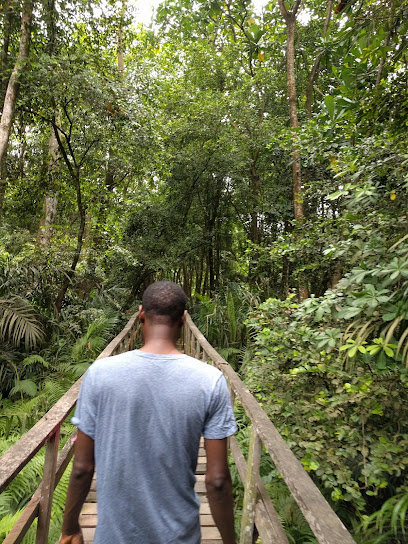
Nike Art Gallery
Discover the heart of Nigerian art at Nike Art Gallery in Lekki, showcasing vibrant collections of traditional and contemporary masterpieces.
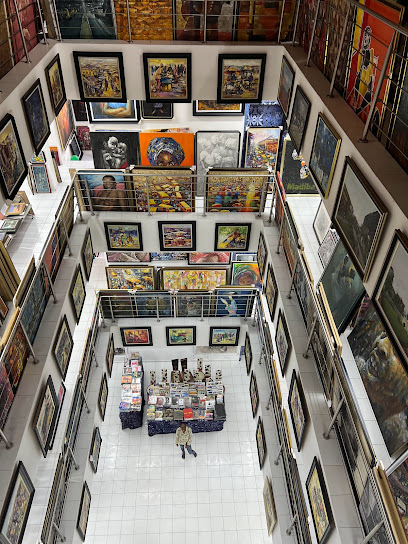
Ndubuisi Kanu Park
Discover the tranquility and beauty of Ndubuisi Kanu Park, a lush urban oasis in Ikeja, Lagos, perfect for relaxation and outdoor activities.
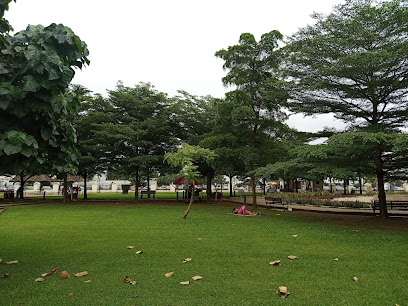
Freedom Park Lagos
Explore the historical and cultural richness of Freedom Park Lagos, a serene national park blending history, nature, and vibrant local culture.
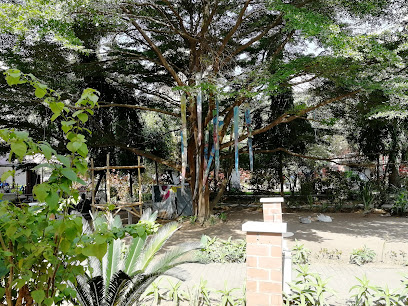
Magic Land
Experience the thrill and enchantment of Magic Land in Kunkwaba, an amusement park filled with fun rides and vibrant attractions for all ages.
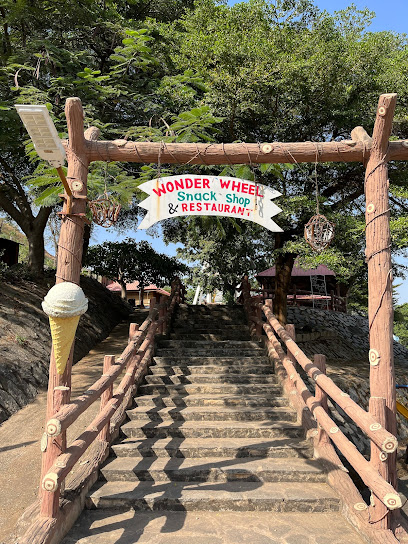
Omu Resort Ibeju Lekki
Experience the ultimate getaway at Omu Resort Ibeju Lekki, where luxury meets adventure in the heart of Lagos.

Yankari Game Reserve
Discover the enchanting beauty and rich biodiversity of Yankari Game Reserve, Nigeria's premier national park for wildlife and nature enthusiasts.
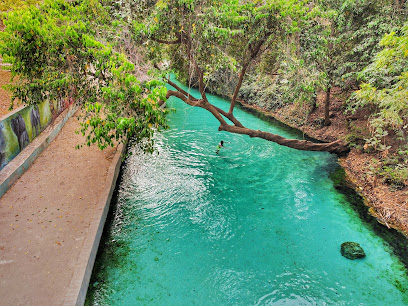
Olumo Rock Tourist Centre
Explore Olumo Rock Tourist Centre: A historical landmark in Abeokuta, Nigeria, combining adventure, culture, and breathtaking views.
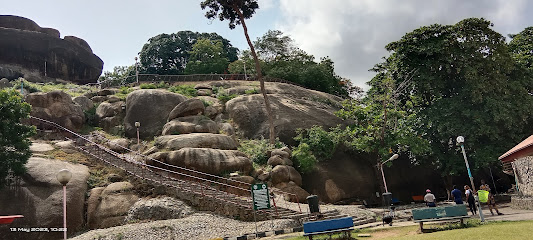
Ikogosi Warm Springs Resort
Discover the enchanting Ikogosi Warm Springs Resort, where natural beauty, soothing waters, and cultural richness come together in Ekiti, Nigeria.

Jos Wildlife Park
Immerse yourself in nature at Jos Wildlife Park, where diverse wildlife and stunning landscapes create an unforgettable escape in Plateau State, Nigeria.
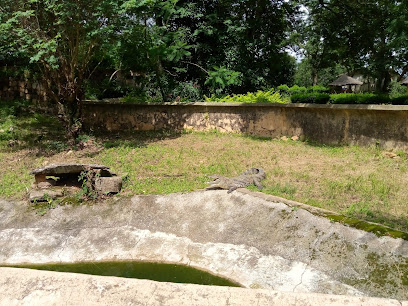
Park Vega Waterpark
Dive into endless fun at Park Vega Waterpark, Agbor's ultimate destination for aquatic adventures, relaxation, and family-friendly activities.

Ogbunike Cave
Discover the enchanting beauty of Ogbunike Cave in Anambra, Nigeria, a stunning natural attraction filled with history and breathtaking landscapes.
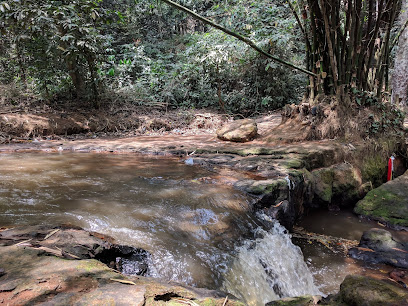
Kwa Falls
Discover the enchanting Kwa Falls, a nature preserve in Aningeje, Cross River, where breathtaking views and adventure await in a serene setting.
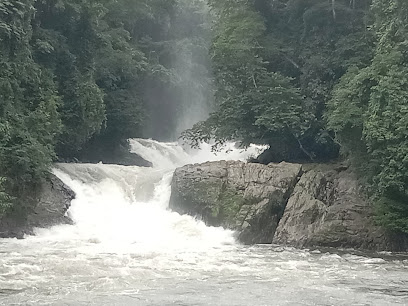
Arinta Waterfalls
Explore the stunning Arinta Waterfalls in Ekiti, Nigeria—a natural wonder offering breathtaking scenery and serene experiences for every traveler.
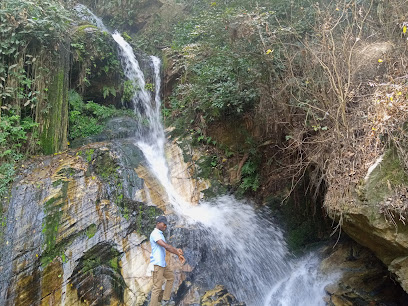
Karu Waterfalls
Explore the breathtaking beauty of Karu Waterfalls, a serene natural attraction in Nigeria's Federal Capital Territory, perfect for nature lovers and adventure seekers.
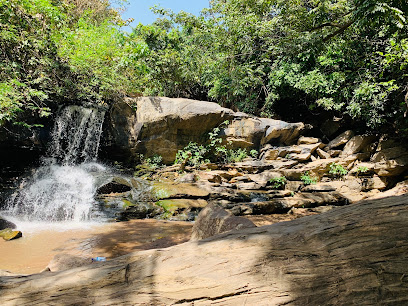
Essential places to dine
BluCabana Restaurant & Cafe
Experience culinary diversity at BluCabana Restaurant & Cafe in Abuja - where every dish tells a story of flavor and culture.
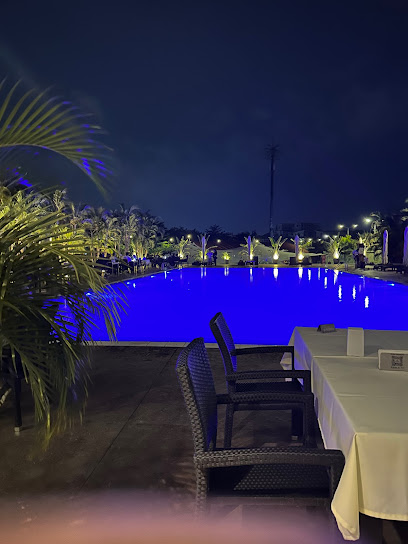
Cilantro Abuja
Experience authentic Indian cuisine at Cilantro Abuja - where tradition meets modernity in every bite.
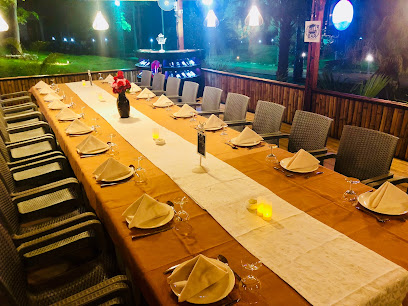
Lagos Bistro
Experience exquisite Nigerian and international cuisine at Lagos Bistro in Abuja - where taste meets tradition.
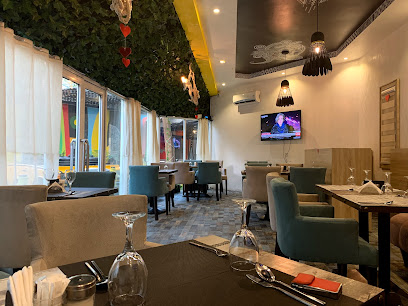
Duo Restaurant
Experience delightful continental cuisine at Duo Restaurant in Abuja's Wuse 2; where every meal feels like a celebration.
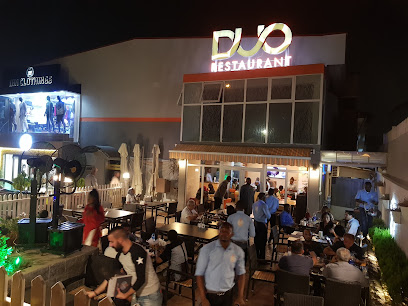
Tulip Bistro
Discover the vibrant flavors of Nigeria at Tulip Bistro in Abuja – where culinary excellence meets warm hospitality.
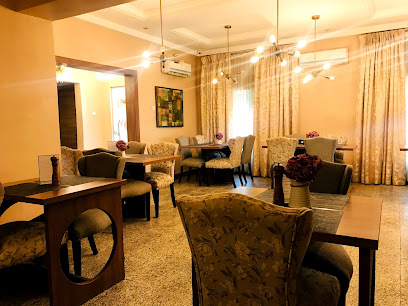
Serendib Restaurant And Bar
Experience the vibrant flavors of Asia at Serendib Restaurant And Bar in Abuja – where culinary excellence meets warm hospitality.
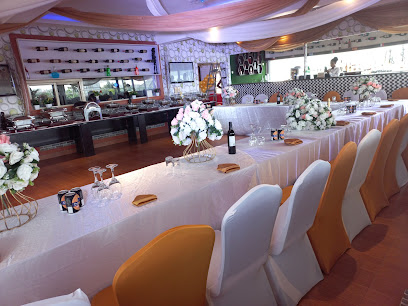
Kapadoccia Lagos
Indulge in exquisite cuisine amidst a stunning waterfall backdrop at Kapadoccia Lagos - a culinary gem in Victoria Island.
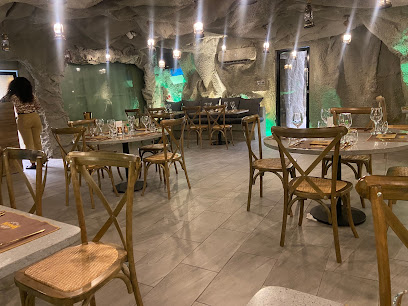
The Barlance
Experience exquisite dining at The Barlance in Abuja - where local flavors meet international cuisine in an elegant setting.
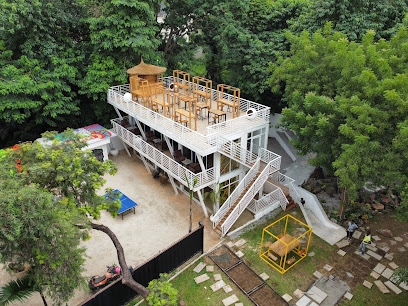
Outside Restaurant and Lounge Abuja
Savor exquisite flavors at Outside Restaurant and Lounge Abuja – where culinary excellence meets vibrant ambiance.
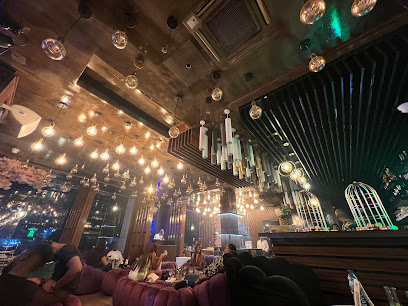
El-Don Tee Restaurant And Bar, New Karu
Discover flavorful breakfasts and relaxing vibes at El-Don Tee Restaurant and Bar in New Karu - your perfect culinary escape.
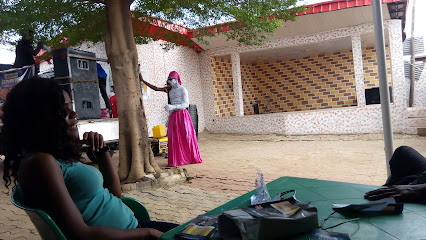
Akwa-Best Restaurant
Experience authentic Nigerian cuisine at Akwa-Best Restaurant in Bwari's vibrant Mami Market - a true taste of local culture!

Flavour Restaurant/Bar Ndok Junction Ogaja. C. R. S.
Discover authentic Nigerian cuisine at Flavour Restaurant/Bar in Ndok Junction, where every dish tells a story of Cross River's rich culinary heritage.
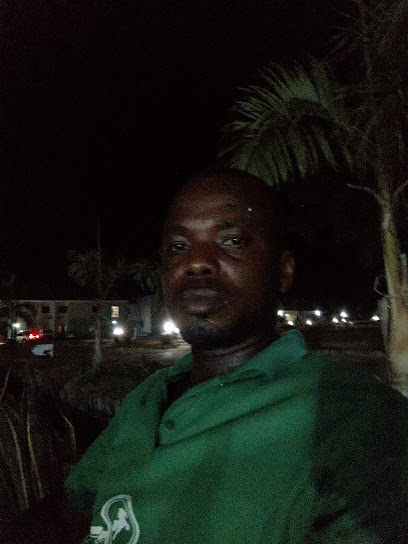
Affordable Restaurant
Discover delicious homemade meals at Affordable Restaurant in Tunga, Minna – where local flavors meet budget-friendly prices.
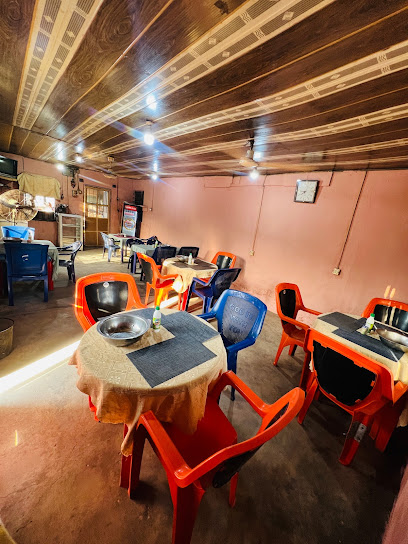
Waz spot
Experience the vibrant flavors of Africa at Waz Spot - where culinary traditions meet modern dining in Ndawuse.
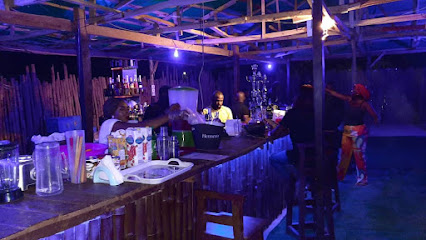
Alfawab Suya Spot
Discover authentic Nigerian flavors at Alfawab Suya Spot - the ultimate destination for suya lovers in Minna.
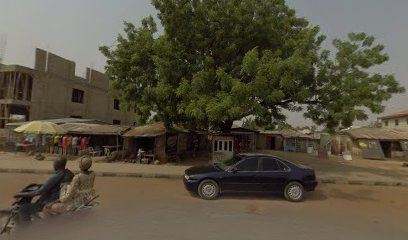
Markets, malls and hidden boutiques
Fashionable jallabiya boutique
Explore the rich cultural heritage of Nasarawa at the Fashionable Jallabiya Boutique, where tradition meets modern elegance in stunning attire.
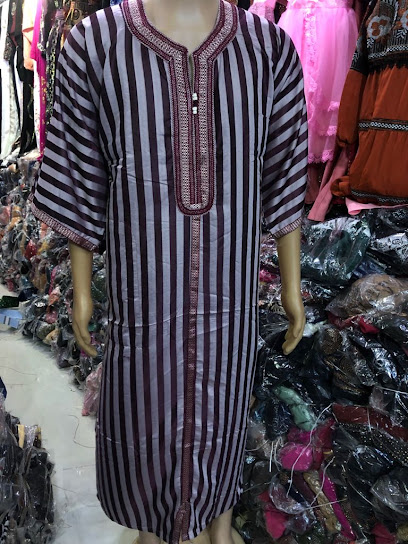
Beautiful Rock Supermarket
Discover the vibrant flavors of Port Harcourt at Beautiful Rock Supermarket, your go-to spot for fresh produce and local delicacies.
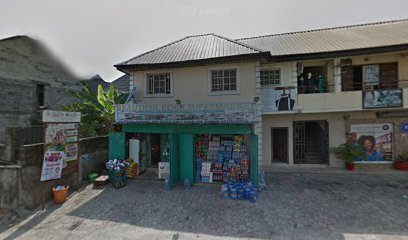
Zuberu Abdullahi White Jalabia Store
Explore the elegance of traditional Jalabias at Zuberu Abdullahi White Jalabia Store in New Karu, Nasarawa - a hub of cultural fashion.
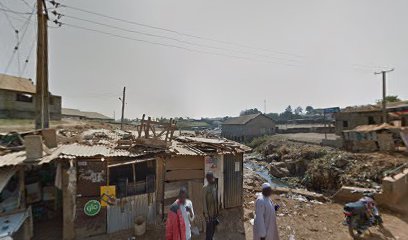
Bash store
Discover the heart of local shopping at Bash Store, where unique finds and local artistry come together for a memorable experience.

Na gumel yahaya abubukar
Explore Na Gumel Yahaya Abubukar Boutique, where local craftsmanship meets modern fashion in a unique shopping experience.

Nature Best Shopping Store
Explore the vibrant Nature Best Shopping Store in Minna, where local culture and unique finds come together for an unforgettable shopping experience.
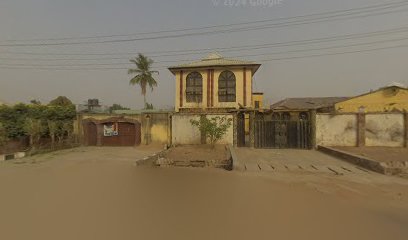
Essential bars & hidden hideouts
Hard Rock Cafe
Explore the lively Hard Rock Cafe Lagos, where American flavors meet vibrant local culture amidst iconic rock memorabilia.
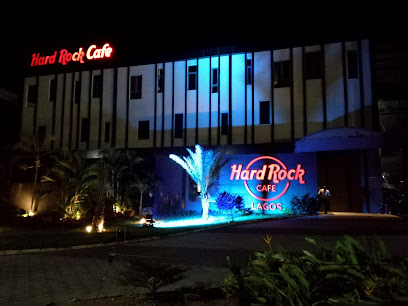
Vai Su Shi Bar
Experience the heart of Bukuru's nightlife at Vai Su Shi Bar, where great drinks and lively atmosphere await you!
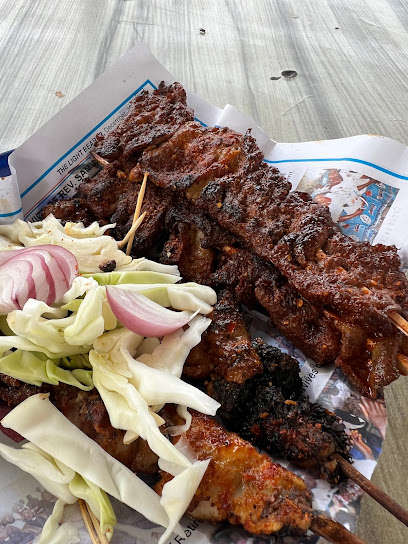
Thrill Lounge and bar
Discover the lively nightlife at Thrill Lounge and Bar in Lafia, known for its vibrant atmosphere, creative cocktails, and unforgettable experiences.
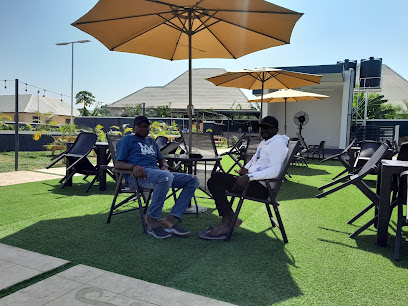
Ruky bar
Discover the lively energy and welcoming atmosphere of Ruky Bar in Elelenwa, Rivers, where great drinks and good company await.
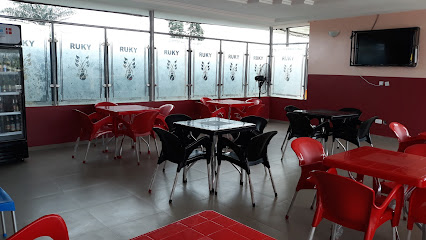
Kaakaky Buka and Bar.
Experience the vibrant nightlife and authentic local flavors at Kaakaky Buka and Bar in Akwanga, Nasarawa.
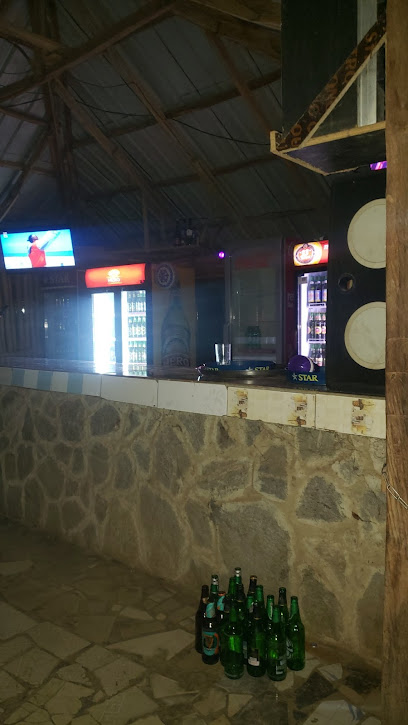
Da Place Guest House, Bar & Events Place
Experience the vibrant nightlife and cozy accommodations at Da Place Guest House, Bar & Events Place in Rukpokwu, Rivers.
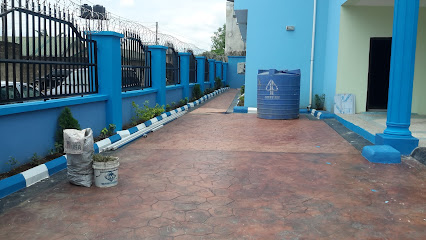
THRILLERS PUB
Experience the lively atmosphere and local charm at Thrillers Pub in Keffi, Nigeria, a must-visit bar for tourists seeking relaxation and fun.

Bebuagam
Discover Bebuagam in Obudu, a lively bar offering a diverse drink selection and a vibrant atmosphere for tourists and locals alike.
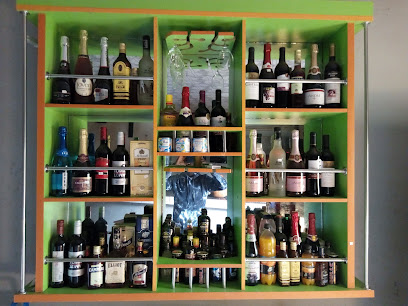
HOTSPOT DRINKING BAR
Discover the lively spirit of Jalingo at Hotspot Drinking Bar, where great drinks and vibrant nightlife come together for an unforgettable experience.
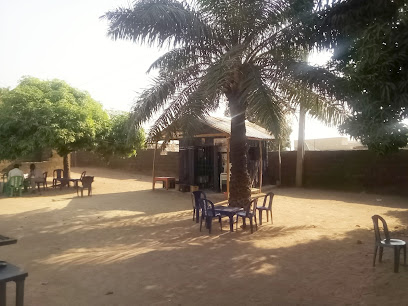
One Corner Bush Bar Restaurant
Experience the vibrant local culture and flavors at One Corner Bush Bar Restaurant in West End, Delta, a must-visit dining destination.
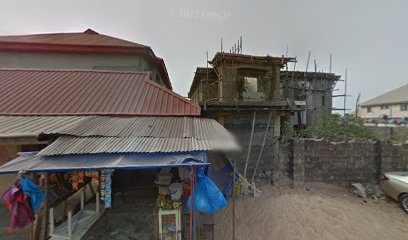
CUTE BAR PANKSHIN
Discover the lively charm of Cute Bar Pankshin, a premier destination for grilled delights and refreshing drinks in Gwolong, Plateau region.
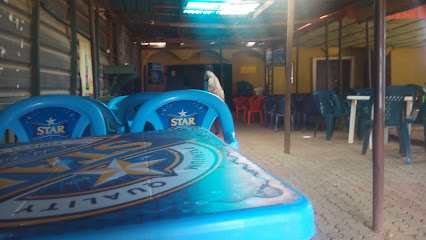
FEEL ALRIGHT JOINT
Discover the lively ambiance of Feel Alright Joint, a bar in Mongu where locals and tourists gather to enjoy drinks, food, and entertainment in Plateau, Nigeria.

Onyekwere bar
Discover the lively atmosphere of Onyekwere Bar, a must-visit spot in Gauraka, Niger, where local beverages meet unforgettable experiences.

House on the Hill
Discover the vibrant atmosphere and stunning views at House on the Hill, a charming bar in Awi perfect for relaxation and socializing.
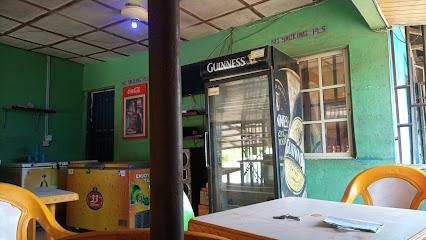
Aso Rock Wine Bar
Discover the cozy charm and vibrant atmosphere of Aso Rock Wine Bar, a local favorite in Ozuoba, perfect for wine lovers and social gatherings.
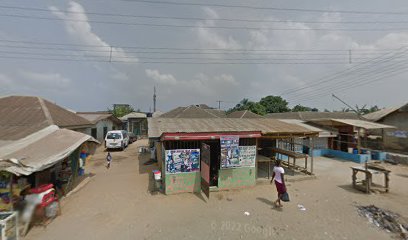
Local Phrases about Barup Waterfall
-
- HelloSannu
[sah-noo] - GoodbyeSai anjima
[sahy an-jee-mah] - YesEh
[ay] - NoA'a
[ah-ah] - Please/You're welcomeDa so
[dah soh] - Thank youNa gode
[nah goh-deh] - Excuse me/SorrySamu
[sah-moo] - How are you?Yaya maka?
[yah-yah mah-kah] - Fine. And you?Yaya maka?
[yah-yah mah-kah] - Do you speak English?Ki yi harshe Turanci?
[kee yee har-shay too-ran-chee] - I don't understandBa na fahimci
[bah nah fah-heem-chee]
- HelloSannu
-
- I'd like to see the menu, pleaseZan gaya shirin kayan sha, da sa'a, mungode
[zahn guy-yah shee-reen kah-yahn shah, dah sah-ah, moon-goh-deh] - I don't eat meatBan jin nama
[bahn jeen nah-mah] - Cheers!Aikin yarinya!
[ay-keen yah-reen-yah] - I would like to pay, pleaseZan bude, da sa'a
[zahn boo-deh, dah sah-ah]
- I'd like to see the menu, pleaseZan gaya shirin kayan sha, da sa'a, mungode
-
- Help!Taimako!
[tahee-mah-koh] - Go away!Zo kusa!
[zoh koo-sah] - Call the Police!Kira tawagar!
[kee-rah tah-wah-gahr] - Call a doctor!Kira dokin ka!
[kee-rah doh-keen kah] - I'm lostNa kasa
[nah kah-sah] - I'm illNa kai
[nah kah-ee]
- Help!Taimako!
-
- I'd like to buy...Zan sayi...
[zahn sah-yee] - I'm just lookingIna so na duba
[ee-nah soh nah doo-bah] - How much is it?Shi ne damuwa?
[shee neh dah-moo-wah] - That's too expensiveWannan ya fi wasu
[wahn-nahn yah fee wah-soo] - Can you lower the price?Zaka iya sake damuwa?
[zah-kah ee-yah sah-keh dah-moo-wah]
- I'd like to buy...Zan sayi...
-
- What time is it?Me ya sa'a ne?
[meh yah sah-ah neh] - It's one o'clockShi ne biyu
[shee neh bee-yoo] - Half past (10)Goma zuwa (10)
[goh-mah zoo-wah (10)] - MorningYamma
[yahm-mah] - AfternoonRana
[rah-nah] - EveningYamma
[yahm-mah] - YesterdayJibi
[jee-bee] - TodayYau
[yow] - TomorrowGobe
[goh-beh] - 1Daya
[dah-yah] - 2Biyo
[bee-yoh] - 3Uku
[oo-koo] - 4Huɗu
[hoo-doo] - 5Biɗa
[bee-dah] - 6Shida
[shee-dah] - 7Bako
[bah-koh] - 8Takwas
[tah-kwahs] - 9Tara
[tah-rah] - 10Goma
[goh-mah]
- What time is it?Me ya sa'a ne?
-
- Where's a/the...?Ina ne...
[ee-nah neh] - What's the address?Me ne adireshin?
[meh neh ah-dee-reh-sheen] - Can you show me (on the map)?Zaka iya nuna min (a cikin rubutu)?
[zah-kah ee-yah noo-nah meen (ah chee-keen roo-boo-too)] - When's the next (bus)?Yaya lokacin da aka zo (motar)?
[yah-yah loh-kah-cheen dah ah-kah zoh (moh-tahr)] - A ticket (to ....)Tikiti (zuwa ....)
[tee-kee-tee (zoo-wah)]
- Where's a/the...?Ina ne...
History of Barup Waterfall
-
Barup Waterfall, located in the lush forests of Nigeria, has been a natural marvel for centuries. The waterfall is situated within the Barup Valley, a region known for its rich biodiversity and unique geological formations. The cascading waters of Barup originate from the highlands, flowing down through a series of cliffs and creating a spectacular sight that has drawn visitors for generations.
-
The Barup Valley has long been inhabited by indigenous communities who consider the waterfall a sacred site. Various local tribes have legends and folklore associated with the waterfall, often viewing it as a dwelling place of spirits or as a source of life. Traditional ceremonies and rituals are still performed at the site, particularly during the rainy season when the waterfall is most vigorous.
-
During the colonial period, European explorers and missionaries documented Barup Waterfall as part of their expeditions. The first detailed maps and descriptions of the waterfall date back to the late 19th century, when British explorers ventured into the region. Their accounts brought international attention to Barup, making it a subject of fascination in natural history circles.
-
Following Nigeria's independence in 1960, efforts were made to promote Barup Waterfall as a tourist destination. The government invested in infrastructure improvements, including the construction of accessible pathways and viewing platforms. This development aimed to balance tourism with environmental conservation, ensuring that the natural beauty of Barup remained intact for future generations.
-
Today, Barup Waterfall is not only a popular tourist spot but also a hub for cultural festivals. Annual events such as the Barup Waterfall Festival celebrate the region's heritage through music, dance, and traditional cuisine. These festivals attract visitors from across Nigeria and beyond, offering a vibrant showcase of the area's rich cultural tapestry.
Barup Waterfall Essentials
-
Barup Waterfall is located in Nigeria's Cross River State. The nearest major airport is Margaret Ekpo International Airport in Calabar, approximately 60 kilometers away. From Calabar, you can rent a car or hire a taxi to take you to the waterfall. The journey typically takes around 2 hours by road. Alternatively, you can use a combination of local buses and motorbike taxis (okadas) to reach the destination, but this may take longer.
-
In the vicinity of Barup Waterfall, the most common modes of transportation are taxis and motorbike taxis (okadas). Public buses also operate in the area, connecting major towns and villages. Renting a car is a convenient option for those who prefer to explore the region at their own pace. However, be prepared for varying road conditions and ensure your vehicle is in good condition.
-
The official currency in Nigeria is the Nigerian Naira (NGN). Credit cards are accepted in some hotels, restaurants, and shops in larger towns, but it is advisable to carry cash, especially in rural areas near Barup Waterfall. ATMs are available in Calabar and other major towns, but it is wise to withdraw sufficient cash before heading to remote locations.
-
Barup Waterfall is generally a safe destination for tourists. However, it is important to take standard precautions. Avoid walking alone at night in unfamiliar areas and keep an eye on your belongings in crowded places. Certain areas in Cross River State have higher crime rates, so it is advisable to stay informed about the current situation and avoid any regions with travel advisories.
-
In case of emergency, dial 112 for immediate assistance. The local police station and medical facilities are available in Calabar. It is recommended to have travel insurance that covers medical emergencies. For minor health issues, there are pharmacies in Calabar where you can purchase over-the-counter medications.
-
Fashion: Do dress modestly, especially in rural areas. Avoid wearing revealing clothing. Religion: Do respect local customs and traditions. Always ask for permission before taking photos of people or religious sites. Public Transport: Do be respectful and give up your seat to elderly passengers. Don't eat or drink on public transport. Greetings: Do greet people with a handshake. Use 'Sir' or 'Madam' as a sign of respect when addressing elders. Eating & Drinking: Do try local delicacies and accept food offerings graciously. Don't refuse hospitality, as it is considered impolite.
-
To experience Barup Waterfall like a local, visit nearby villages and engage with the locals. They are often friendly and willing to share stories about the area's history and culture. Participate in local festivals and events to get a deeper understanding of the community. Don't miss the opportunity to try local dishes such as Afang soup and Ekpang Nkukwo. For a unique experience, take a guided tour with a local guide who can show you hidden gems and provide insights into the region's natural beauty.
Trending Landmarks in Barup Waterfall
Nearby Cities to Barup Waterfall
-
Things To Do in Calabar
-
Things To Do in Dschang
-
Things To Do in Bamenda
-
Things To Do in Uyo
-
Things To Do in Mbouda
-
Things To Do in Nkongsamba
-
Things To Do in Enugu
-
Things To Do in Bafoussam
-
Things To Do in Buea
-
Things To Do in Tiko
-
Things To Do in Limbe
-
Things To Do in Owerri
-
Things To Do in Foumban
-
Things To Do in Douala
-
Things To Do in Onitsha




